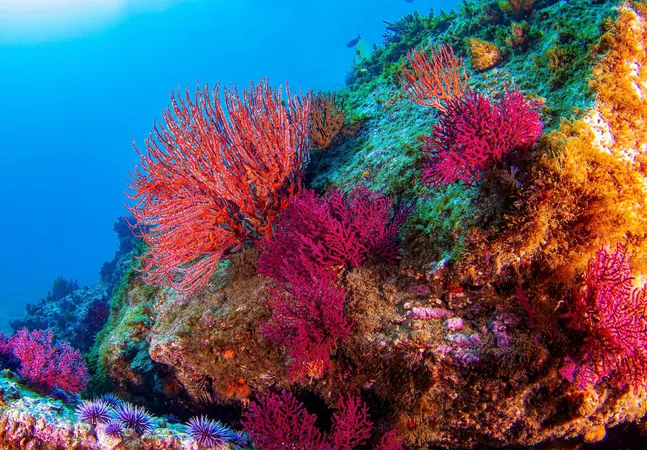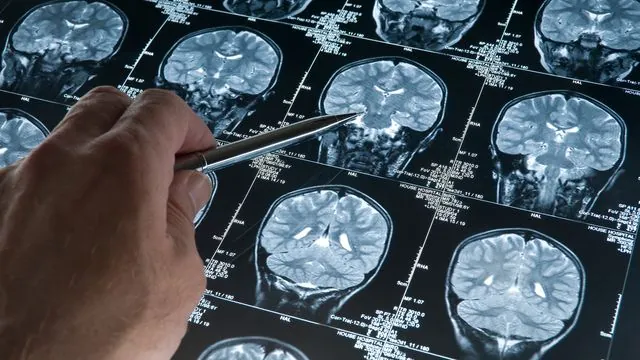
Unlocking Coral Reef Secrets: How Microbes Can Save Our Oceans
2025-05-19
Author: Sarah
Coral Reefs: A Treasure Trove of Biodiversity
Coral reefs, known for their vibrant colors and diverse ecosystems, are under threat. While much of their beauty stems from tiny algae within coral tissues, the real story unfolds in the unseen world of microbes. These microscopic organisms—bacteria, archaea, and friends—play a crucial role in monitoring coral health and responding to environmental changes.
A Revolutionary Study on Microbial Monitoring
A groundbreaking study from the Woods Hole Oceanographic Institution (WHOI) and George Mason University shines light on using microbes as vital indicators for coral reef health. With climate change, pollution, and habitat destruction on the rise, these findings offer fresh hope for coral conservation.
Discovering the Hidden Health of Coral Reefs
Amy Apprill, lead author of the study, emphasizes the importance of understanding microbial communities in assessing reef health. Incorporating microbes into our assessments allows us to grasp the true state of these ecosystems, she explains. We’ve compiled an impressive array of data that showcases these crucial connections.
Microbial Insights vs. Traditional Methods
Unlike conventional monitoring—which mainly relies on visible signs like coral bleaching or damage—microbial analysis offers deeper insights. This innovative approach can provide swift feedback, revealing what lies beneath the surface that eyes can’t see.
Empowering Conservation Efforts
The study highlights the versatility of microbial sampling for park managers, conservationists, and policymakers. Collecting water samples can be done without harming the reefs, and methods range from simple microscopy to advanced genetic sequencing, catering to various budgets and resources.
Decoding Microbial Responses
Microbes are sensitive to changes in their environment—reacting to factors like nutrient levels, temperature, and light. For instance, detecting E. coli indicates harmful contamination, while certain photosynthetic microbes may reflect a thriving ecosystem. This data can inform targeted interventions and tailored reef restoration projects.
Flexibility and Collaboration in Monitoring
One of the greatest strengths of microbial monitoring is its adaptability, allowing for a range of methodologies. The authors encourage collaboration within the coral reef community to establish standardized practices and share valuable insights.
Combatting Emerging Threats with Microbial Data
Routine sampling of microbial communities could unveil changes over time, paving the way for larger-scale monitoring initiatives. The ultimate vision? A global database of microbial data, paired with machine learning tools, capable of predicting reef health and creating a microbial health index.
The Urgency of the Coral Bleaching Crisis
As climate change escalates, coral bleaching events have surged, often resulting in the loss of vital algae due to heat stress or pollution. Researchers stress the necessity of employing all available tools, including microbial insights, to enhance reef resilience.
Fostering Hope for Coral Reefs
We must arm decision-makers with practical guidance, Apprill insists. Microbes can deepen our understanding of these ecosystems and refine our management strategies. The goal? To inspire excitement and adoption of innovative microbial monitoring techniques in coral reef management initiatives.
The Future of Coral Conservation
By tuning into the microbial chorus within reef waters, there is hope that we can safeguard some of the ocean's most critical ecosystems before it's too late. The full study is available in the journal *Cell Reports Sustainability*, inviting further exploration and action.




 Brasil (PT)
Brasil (PT)
 Canada (EN)
Canada (EN)
 Chile (ES)
Chile (ES)
 Česko (CS)
Česko (CS)
 대한민국 (KO)
대한민국 (KO)
 España (ES)
España (ES)
 France (FR)
France (FR)
 Hong Kong (EN)
Hong Kong (EN)
 Italia (IT)
Italia (IT)
 日本 (JA)
日本 (JA)
 Magyarország (HU)
Magyarország (HU)
 Norge (NO)
Norge (NO)
 Polska (PL)
Polska (PL)
 Schweiz (DE)
Schweiz (DE)
 Singapore (EN)
Singapore (EN)
 Sverige (SV)
Sverige (SV)
 Suomi (FI)
Suomi (FI)
 Türkiye (TR)
Türkiye (TR)
 الإمارات العربية المتحدة (AR)
الإمارات العربية المتحدة (AR)